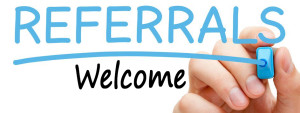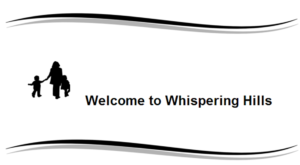
My Life With AIDS, Tragedy to Triumph – Available NOW
With FIVE STARS on www.amazon.com, My Life With AIDS, Tragedy to Triumph is available now! Considered “a must read” by one reviewer, “Catherine not only delivers a powerful message, but one that is heartfelt, honest and impactful. It is one of the most important messages that a woman (or man) could witness.”
Just like her previous work, Catherine Wyatt-Morley has poured her heart into this book using every bit of strength she has. Catherine went through a cycle of internalizing and self-educating, before she gained the strength for helping others. Desperately seeking sanity in an insane diagnosis, she took control of her life through the pages of her first book, AIDS Memoir Journal of an HIV Positive Mother written to her children and in 2005, Catherine joined Ian Mayo-Smith in writing a second book, entitled Positive People: Combating HIV and AIDS (Trafford Publishing).
In AIDS as in many other diseases both physical and psychological, the most successful prevention efforts aim not just at informing people, but also at changing social norms. Catherine’s life and W.O.M.E.N. carry out both of those tasks. Catherine hopes to remain at the forefront in the fight against HIV/AIDS and fervently believes that before the sun sets on another child’s dreams, HIV must be eliminated. “I can say that she not only writes the message, but she LIVES the message each day as she strives past her own struggles to educate and impact others.” – amazon.com review of My Life With AIDS, Tragedy to Triumph.
My Life With AIDS, Tragedy to Triumph is available HERE in paperback and Kindle version
Pick up your copy today!

Pregnancy and HIV/AIDS – What You Need to Know
Motherhood is an experience that everyone who wants to, deserves to experience. It is as rewarding as it is life changing, and it is imperative that you are in the best health you can be to start your child’s life the healthiest way possible. What most people don’t realize is that there are ways to get pregnant and not infect your partner or the child. With that said, when embarking on this journey, it is imperative to know that HIV can be spread to your baby during the pregnancy, while in labor, while giving birth, or by breastfeeding. Luckily, you will have many choices to make about lowering the risk of passing HIV to your baby. Just because you have HIV doesn’t mean your child will get HIV. In the United States, before effective treatment was available, about 25 percent of pregnant HIV-positive mothers who didn’t breastfeed and did not receive anti-HIV treatment in pregnancy passed the virus to their babies.
Today, the risk of giving HIV to your newborn is below 2 percent. But you and the baby must get the right HIV drugs at the right times. The steps below can lower the risk of giving HIV to your baby.
- -Get as healthy as possible before becoming pregnant.
- -Start HIV treatment before pregnancy if you need it for your own health. Or, you can start treatment during pregnancy to lower the risk of passing HIV to your baby. If you are already on treatment, do not stop, but do see your doctor right away. Some HIV drugs should not be used while you’re pregnant. For other drugs, you may need a different dosage.
- -Make sure your baby is tested for HIV right after birth. Your doctor or clinic should be experienced in managing babies who have been exposed to HIV. They will tell you what follow-up tests your baby will need, and when.
- -Ask your doctor about starting treatment for your baby right away if your baby is diagnosed with HIV. This may require a number of tests and you may not know until he is 2 to 4 months old.
- -Until you know that your baby is HIV-positive or HIV-negative, ask your pediatric HIV specialist if your baby might benefit from anti-HIV medicines. New research shows that putting a newborn on a 2- or 3-drug anti-HIV medicine plan cuts the infant’s risk of HIV by 50 percent (compared to using one drug only).
- -Ask your doctor about other medicines the baby may need to prevent opportunistic infections until you know for sure whether the baby has HIV.
If you want to get pregnant, or just found out you are pregnant, you need to get to a doctor right away. If you need help finding the resources for you, give us a call and we will be happy to help!

What You Need to Know about Hepatitis
To put it simply, Hepatitis means inflammation of the liver. Unfortunately, nothing about Hepatitis is simple. According to the World Hepatitis Alliance, Hepatitis is a disease that that currently affects more than 500 million people around the world and is responsible for approximately 1.5 million deaths a year. Currently the world’s 8th biggest killer, Viral hepatitis is one of the most underestimated diseases on the planet. Although one in three people around the world have been in contact with a hepatitis virus, many people have no idea what it is.
Viral Hepatitis Transmission
People can be infected with the three most common types of hepatitis in these ways:
- HAV: Ingestion of contaminated fecal matter, even in tiny amounts, from close person-to-person contact with an infected person, sexual contact with an infected person, or contaminated food, drink, or objects.
- HBV: Contact with infectious blood, semen, or other body fluids; sexual contact with an infected person; sharing of contaminated needles, syringes, or other injection drug equipment; and needlesticks or other sharp-instrument injuries. In addition, an infected woman can pass the virus to her newborn.
- HCV: Contact with blood of an infected person, primarily through sharing contaminated needles, syringes, or other injection drug equipment, and, less commonly, blood transfusions, sexual contact with an infected person, birth to an infected mother, and needlesticks or other sharp-instrument injuries.
Chronic HCV is often “silent,” and many people can have the infection for decades without having symptoms or feeling sick. Compared with other age groups, people aged 46 to 64 are 4 to 5 times as likely to be infected with HCV. Any sexual activity with an infected person increases the risk of contracting hepatitis. In particular, unprotected anal sex increases the risk for both HBV and HIV. New data suggest that sexual transmission of HCV among MSM with HIV occurs more commonly than previously believed. (according to the Center for Disease Control)
Viral Hepatitis Prevention
If you have HIV infection, you can lower your risk of contracting hepatitis and other bloodborne viruses by not sharing toothbrushes, razors, or other personal items that may come into contact with an infected person’s blood. Do not get tattoos or body piercings from an unlicensed facility or in an informal setting, which may use dirty needles or other instruments. Just as HIV-positive individuals would not want to engage in behaviors that would put them at risk for hepatitis, these same behaviors would also put others at risk for HIV.
- HAV: The best way to prevent HAV infection is to get vaccinated. The Centers for Disease Control and Prevention (CDC) recommends vaccination for HAV for people who are at risk for HIV infection, including MSM; users of recreational drugs, whether injected or not; and sex partners of infected people.
- HBV: The best way to prevent HBV infection is to get vaccinated. CDC recommends universal vaccination against HBV for people who have or are at risk for HIV infection, including MSM; people who inject drugs; sex partners of infected people; people with multiple sex partners; anyone with a sexually transmitted infection; and health care and public safety workers exposed to blood on the job.
- HCV: There is no vaccine for HCV. CDC estimates that people born during 1945 through 1965 account for nearly 75% of all HCV infections in the United States. The best way to prevent HCV infection is to never inject drugs or to stop injecting drugs if you currently do so by getting into and staying in a drug treatment program. If you continue injecting drugs, always use new, sterile syringes and never reuse or share syringes, needles, water, or other drug preparation equipment. You can also reduce your risk for contracting HCV from sexual contact by
- Abstaining from sexual intercourse.
- Being monogamous.
- Using a condom.
- Avoiding rough sex.
- Getting tested for sexually transmitted diseases and HIV.

…Things You Should Know about HIV and Safer Sex (cont.)
- If you chose to have sex, use a latex condom with EVERY partner. No exceptions.
- Use protection, wear a latex condom.
- Use a new latex condom each time you have vaginal, anal or oral sex.
- Use water based lubricant with latex condoms.
- Never use an oil-based lubricant such as hand lotion or baby oil. It weakens the latex and the condom may break.
- Use a latex barrier (a condom cut in half or a dental dam) if you have oral sex with a women.
- Massage, hugging and masturbation are safe.
- It’s safer not to use drugs.
- Insist on watching your NEW tattoo needle come out of packaging before getting a tattoo. Never share needles or inks for tattooing or piercing.
- NO CONDOM, NO SEX, NO WAY.” tells your partner you’re serious about safer sex.
- Talk about safer sex with EVERY partner before you have sex.
- Ask your partner about his/her sexual history, behaviors and drug usage before you engage in any sexual activity.
- If you are infected and do not inform your sexual partner of your HIV status before sex and you engage in unprotected sex and transmit HIV to that person you have committed a felony.
- Taking a HIV test is the only way to know you are not infected.
- Get tested three to six months after any unprotected exposure.
- You have options. You can buy a home HIV test kit at most drug stores. Then contact the nearest community based organization for counseling or to ask questions. You can also get tested by a doctor, health clinic, community based organization or public testing center.
- Some testing sites keep results confidential while others utilize anonymous testing. Confidential testing uses your real name. You and your doctor will know the results. Anonymous testing doesn’t use your name at all. Only you will know your results.
- People are still dying of AIDS related illnesses.
- THERE IS NO CURE! Remember you are in charge.
Invisible Heroes
February is Black History Month recognizing all the African Americans who have made a difference. Throughout this month the most famous individuals are thrust into the forefront and celebrated for their contributions to society. However, there are a large number of African Americans not mentioned.
These are our invisible heroes. We tend to forget about those that were left out of the history books in favor of the more famous individuals. Invisible heroes are just as worthy of praise. For every Dr. Martin King, Jr. and Harriet Tubman there are three others that contributed just as much to society, however they are often overlooked.
People like Dr. Daniel Hale Williams, the first person to perform open heart surgery was African American. Or Garrett Morgan who invented the gas mask and traffic signal. Notable accomplishments by African American women are also silenced. For example, Jane Bolin was the first African American woman to become a judge as well as the first to graduate from Yale Law School and join the New York City Bar Association. And Althea Gibson, the first African American to play in and win the United States National Tennis Championship and Wimbledon.
It is important to recognize and celebrate everyone both famous and the not so famous every day not just in February.
W.O.M.E.N. challenges you to research and learn more about the invisible heroes. There is more to black history than what is taught in school!






